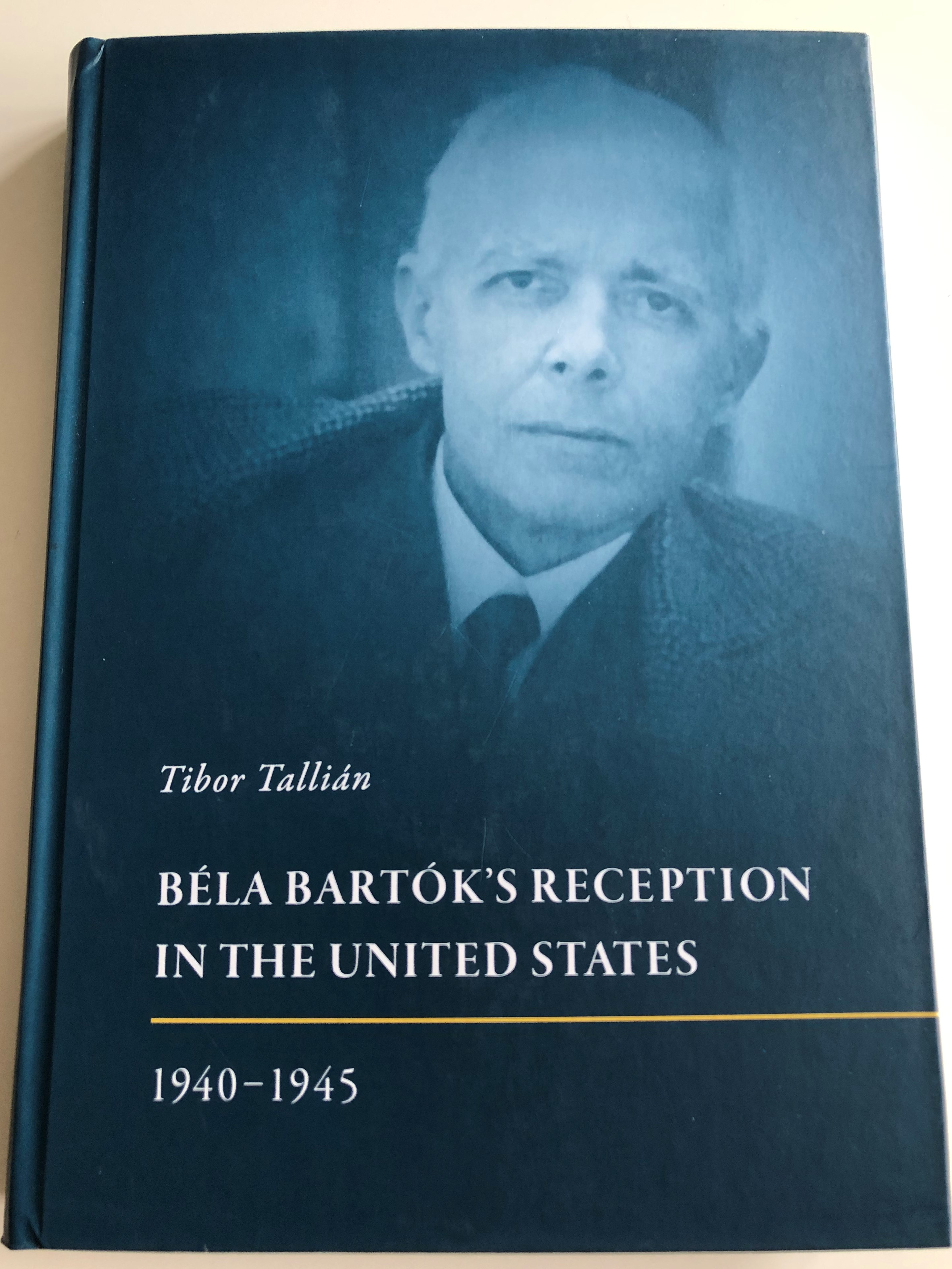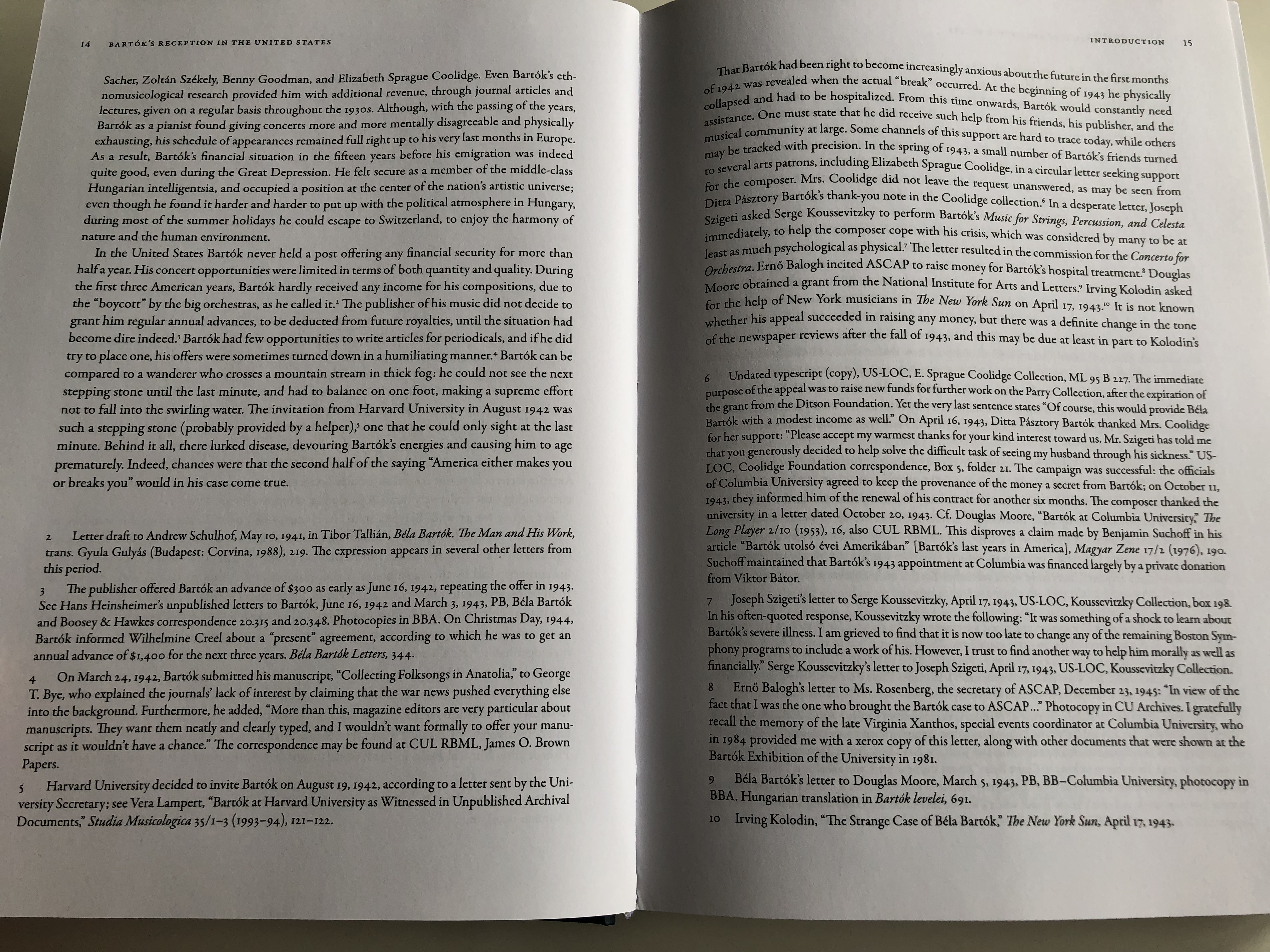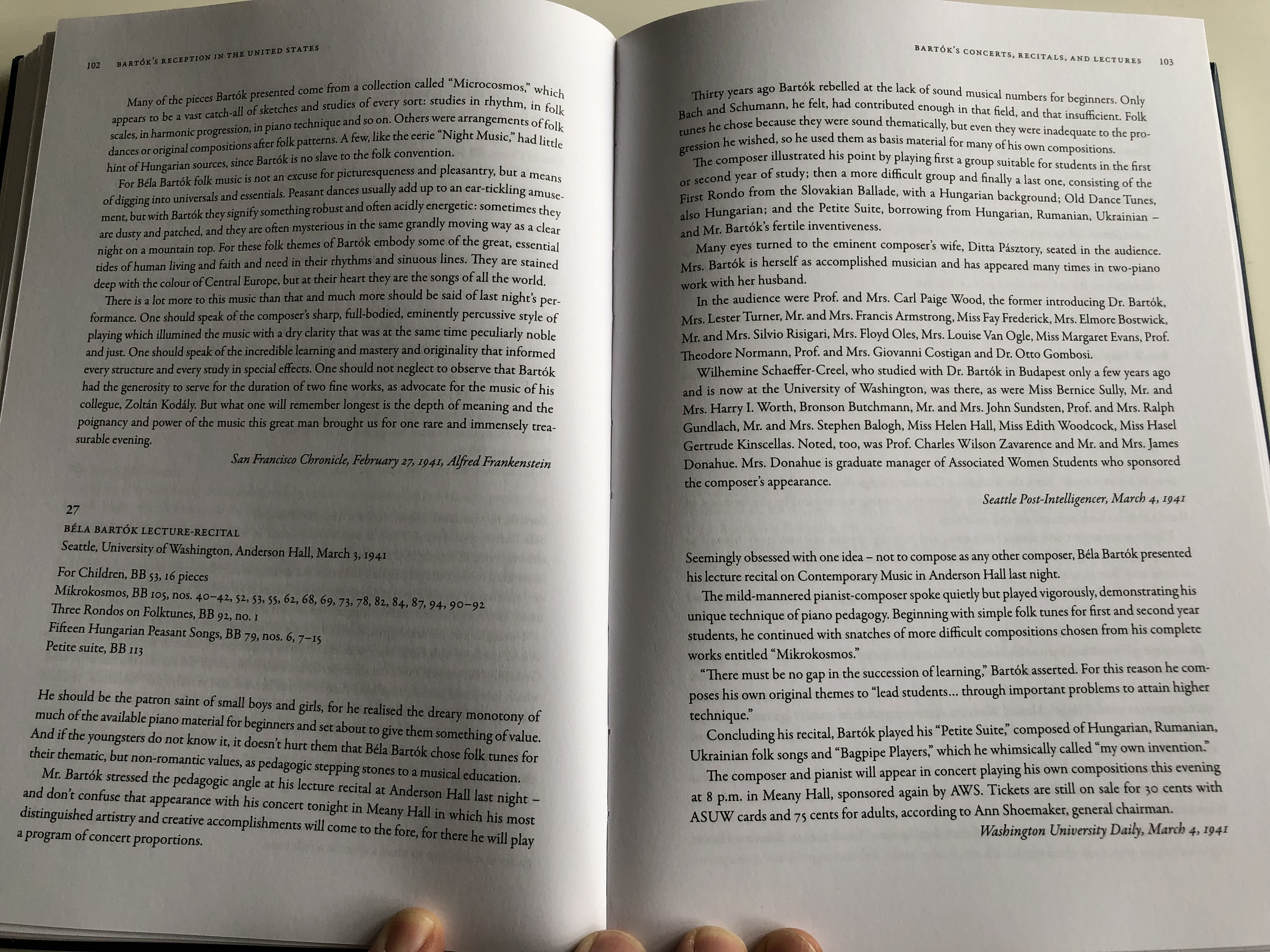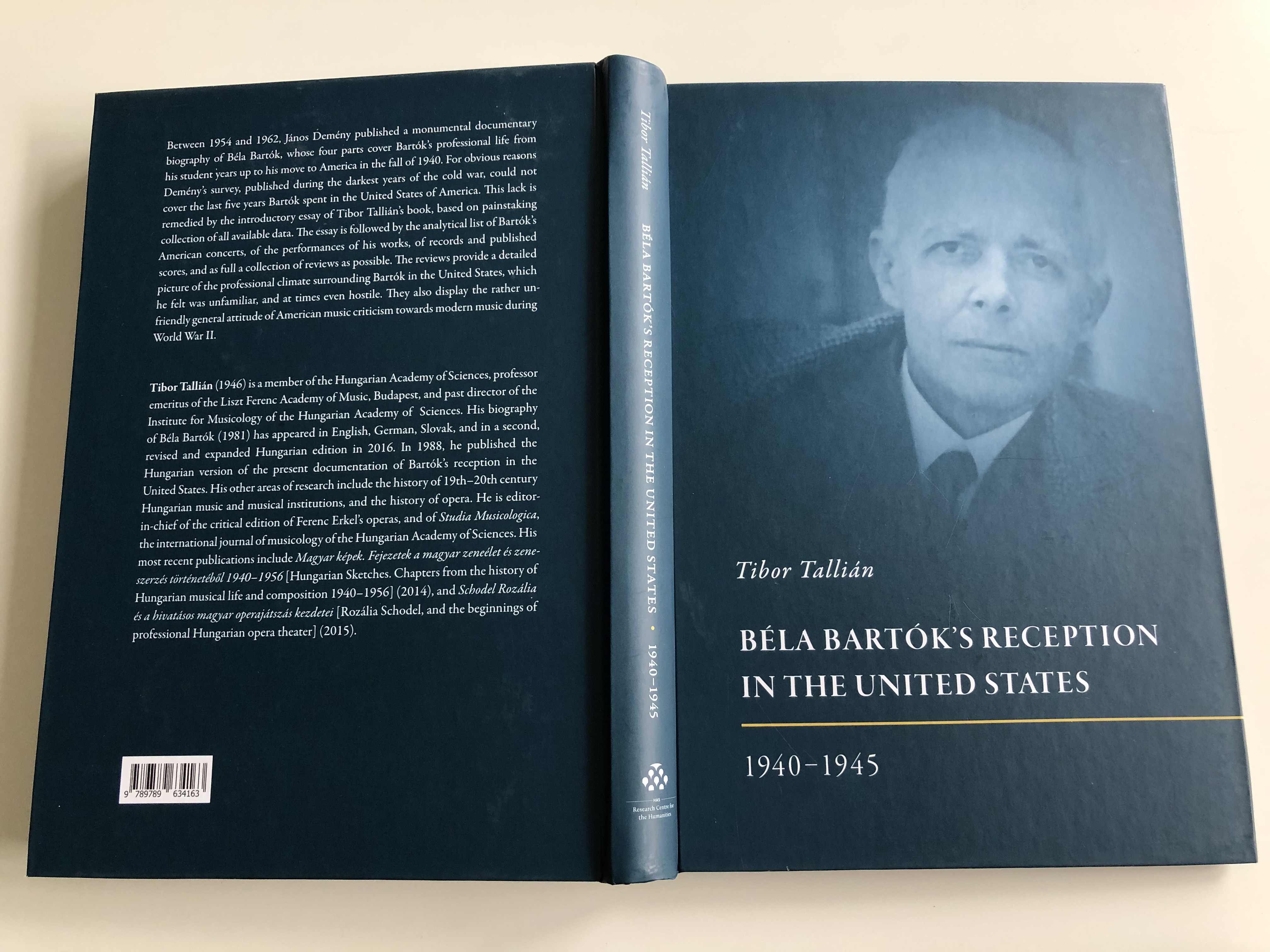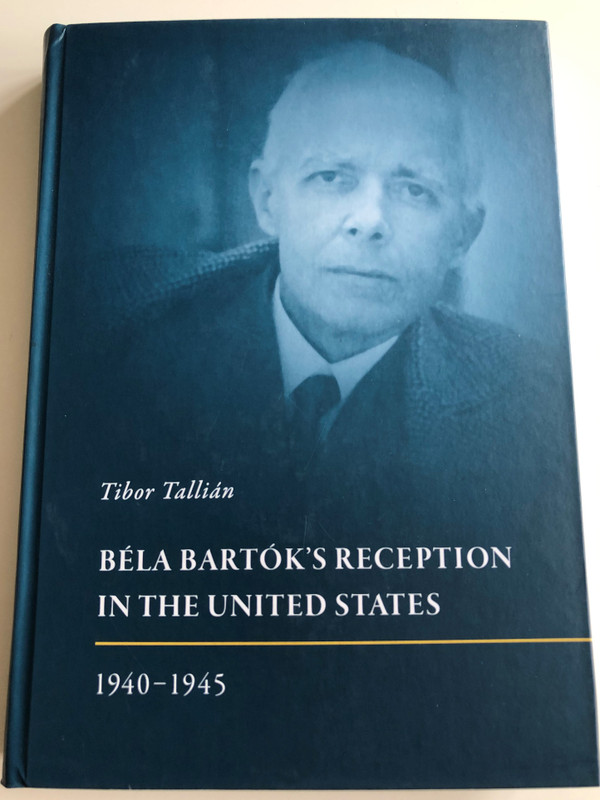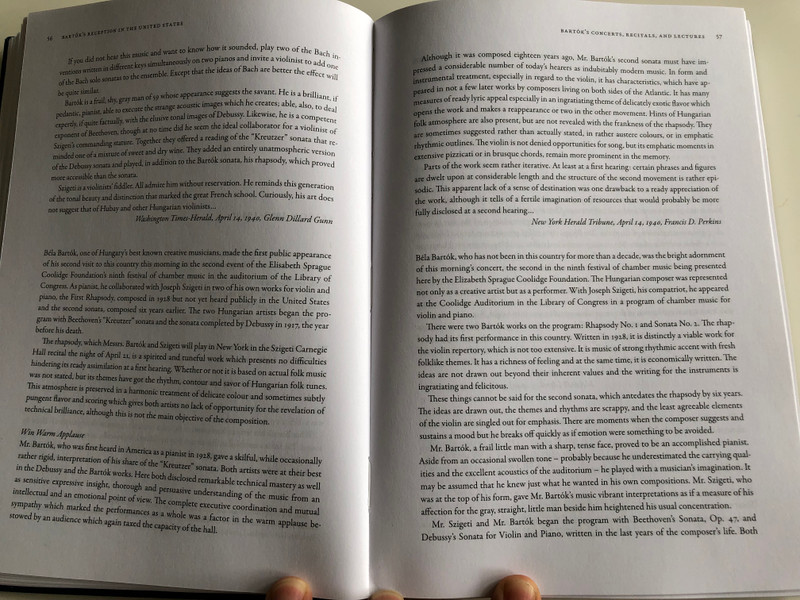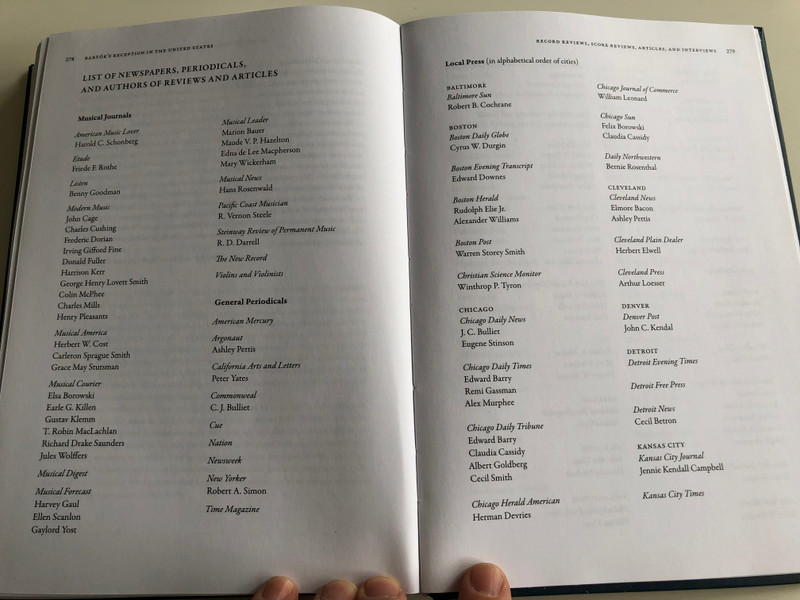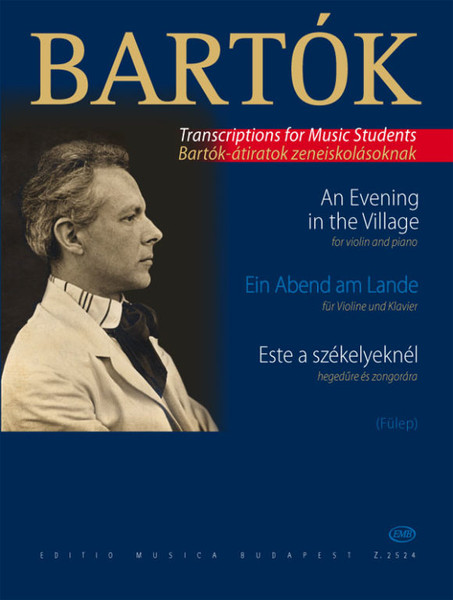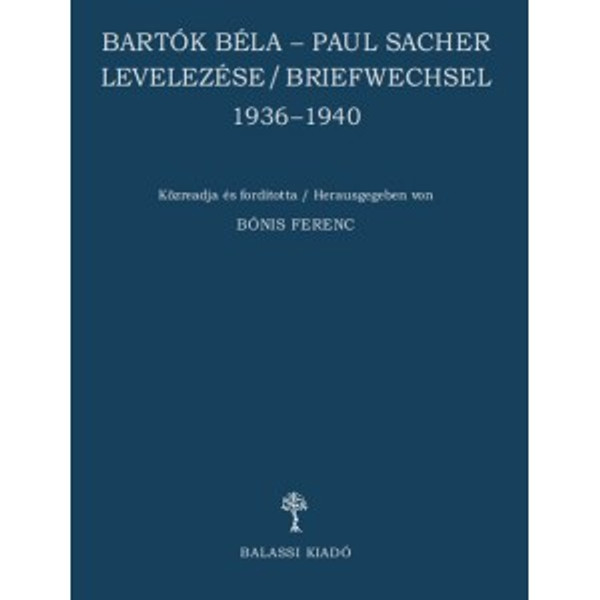Description
Béla Bartók's Reception in the United States 1940-1945 By Tibor Tallián
Hardcover 2017
Publisher: HAS Research Centre for the Humanities / MTA BTK Zenetudományi Intézet, Budapest
ISBN: 9789789634163, 9789789634163
ISBN-10: 9789634161
Pages: 292
Language: English
Overview
English:
Béla Bartók's Reception in the United States 1940-1945 is an in-depth academic study by renowned Hungarian musicologist Tibor Tallián. This book explores how the music and legacy of Béla Bartók were received, understood, and appreciated in the United States during the crucial period between 1940 and 1945, a time when Bartók was deeply affected by political turmoil in Europe. Tallián investigates the American response to Bartók’s compositions, performances, and his contributions to ethnomusicology. This comprehensive work sheds light on how one of Hungary's most celebrated composers gained international recognition and shaped American musical culture.
About the Author
Hungarian:
Tallián Tibor (született: báró vizeki Tallián Tibor Béla Miklós, Salzburg, Ausztria, 1946. április 12.) Széchenyi- és Erkel Ferenc-díjas zenetörténész, a Magyar Tudományos Akadémia levelező tagja, a Magyar Tudományos Akadémia Bölcsészettudományi Kutatóközpontja Zenetudományi Intézete és a Liszt Ferenc Zeneművészeti Egyetem professor emeritusa. Tudományos tevékenysége kimagasló, különösen Bartók Béla életműve, a XX. századi zene, illetve a magyar operatörténet kutatása terén. Kiváló zenetörténész, kritikus és oktató.
English:
Tibor Tallián (born: Baron Vizeki Tallián Tibor Béla Miklós, Salzburg, Austria, April 12, 1946) is a prominent music historian, awarded with the Széchenyi and Erkel Ferenc Prizes. He is a Corresponding Member of the Hungarian Academy of Sciences, a professor emeritus at the Liszt Ferenc Academy of Music, and former director of the Institute for Musicology at the Hungarian Academy of Sciences. His scholarly work is exceptional, particularly in the study of Béla Bartók's legacy, 20th-century music, and Hungarian opera history. He is a distinguished musicologist, critic, and educator.
About Béla Bartók
Hungarian:
Bartók Béla (1881. március 25. – 1945. szeptember 26.) magyar zeneszerző, zongorista és etnomuzikológus. A 20. század egyik legfontosabb zeneszerzőjének tartják, Liszt Ferenc mellett Magyarország legnagyobb zeneszerzőjének számít. A népzene gyűjtése és elemzése révén ő volt az összehasonlító zenetudomány, később az etnomuzikológia egyik alapítója.
English:
Béla Bartók (March 25, 1881 – September 26, 1945) was a Hungarian composer, pianist, and ethnomusicologist. He is considered one of the most important composers of the 20th century and, alongside Franz Liszt, is regarded as Hungary's greatest composer. Through his collection and analysis of folk music, he became one of the founders of comparative musicology, which later evolved into ethnomusicology.
Key Features
- Historical Insight: Analyzes the reception of Béla Bartók’s work in the United States during the politically turbulent years of 1940-1945.
Történelmi betekintés: Elemzi Bartók Béla munkásságának fogadtatását az Egyesült Államokban az 1940-1945 közötti politikailag viharos években. - Comprehensive Research: Draws on extensive research, including correspondence, critical reception, and the influence of Bartók's works in American musical life.
Átfogó kutatás: Részletes kutatáson alapul, beleértve a levelezéseket, a kritikai fogadtatást és Bartók műveinek hatását az amerikai zenei életben. - Focus on Ethnomusicology: Highlights Bartók’s contributions to the field of ethnomusicology, with an emphasis on his folk music research.
Fókuszban az etnomuzikológia: Kiemeli Bartók etnomuzikológiai hozzájárulásait, különös figyelmet fordítva népzenei kutatásaira.
Interesting Facts
- Bartók’s Influence in America: This work traces how Bartók's music began to shape American classical music and musicology during a time of global upheaval.
Bartók hatása Amerikában: Ez a munka bemutatja, hogyan kezdte Bartók zenéje formálni az amerikai klasszikus zenét és zenetudományt a globális zűrzavar idején. - Bartók’s Lifelong Legacy: The book documents how Bartók’s legacy continues to inspire musicians, scholars, and music lovers in the United States and beyond.
Bartók életre szóló öröksége: A könyv bemutatja, hogyan inspirálja Bartók öröksége az Egyesült Államokban és világszerte a zenészeket, tudósokat és zenekedvelőket.
For Music and History Enthusiasts
This book is ideal for:
- Musicologists and Ethnomusicologists: Those interested in the reception of classical music and ethnomusicology in the United States.
Zenetörténészek és etnomuzikológusok: Azok számára, akik érdeklődnek a klasszikus zene és etnomuzikológia fogadtatása iránt az Egyesült Államokban. - Students of 20th-Century Music: A valuable resource for anyone studying the works of Béla Bartók and his impact on American music.
A XX. századi zene tanulói: Értékes forrás mindenkinek, aki Bartók Béla műveit és hatását kutatja az amerikai zenére. - Classical Music Lovers: A must-read for anyone passionate about Bartók's legacy and its influence across the globe.
Klasszikus zene rajongói: Kötelező olvasmány mindenkinek, aki szenvedélyesen érdeklődik Bartók öröksége és annak hatása iránt világszerte.
Hashtags
#BélaBartók #BartókUSA #MusicHistory #Ethnomusicology #ClassicalMusic #20thCenturyMusic #TiborTallián #HungarianMusic #BartókReception
